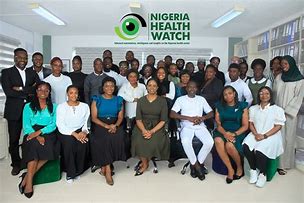HEALTH

THOUGHT LEADERSHIP: SHAPING A HEALTHIER FUTURE FOR NIGERIA IN 2025
By Nigeria Health Watch
January 2, 2025
As we step into 2025, we celebrate 17 years since the launch of our first editorial on health issues in Nigeria. Thank you for being part of this journey; your support fuels our mission at Nigeria Health Watch.
Reflecting on the health landscape of 2024, it’s clear that pinpointing a single standout story is a challenge. The year was marked by a multitude of health challenges, opportunities, and significant milestones. With the appointment of Professor Muhammad Ali Pate as Coordinating Minister for Health in 2023, there was renewed optimism that “health was back on the front burner.” His administration introduced the Nigeria Health Sector Renewal Investment Initiative (NHSRII), aimed at transforming the health sector through four key pillars: Effective Governance, Quality Health Systems, Unlocking Value Chains, and Health Security. This initiative set the stage for action in 2024.
Navigating the complexities of a new team often involves a process of forming, norming, storming, and performing. However, it was evident to all stakeholders that this was not just business as usual. With new appointments to key health sector positions, initial hesitations faded as both internal and external partners began to align with the Minister's vision.
The year culminated in two landmark events: the inaugural Health Sector Joint Annual Review (JAR) and the National Council on Health meeting in Maiduguri, Borno State. These gatherings emphasized transparency and set the baseline for measuring progress in the sector while establishing priorities for 2025.
As we look forward, we identify five critical issues that urgently need attention in the coming year:
1. Declining Development Assistance: A Call for Nigeria to Step Up
Global official development assistance (ODA) is on the decline, prompting Nigeria to increase its own investment in health. This isn’t merely a charitable act; it’s essential for the nation’s long-term economic stability. The 2025 budget proposed by President Bola Ahmed Tinubu allocates just 5.18% (2.48 trillion naira) to health, falling short of the 15% target set by the Abuja Declaration. This underscores the necessity for Nigeria to maximize the effectiveness of its health spending. Implementing the Sector-Wide Approach (SWAp) will be vital for aligning donor resources with national priorities.
2. Staying Ahead of Health Security Threats
Ongoing health security threats, including outbreaks of diseases such as Lassa fever and diphtheria, continue to challenge Nigeria. The recent declaration of mpox as a public health emergency emphasizes the need for robust preparedness and early detection systems. Nigeria’s participation in Phase 2 clinical trials for a Lassa fever vaccine in 2024 marks a significant step forward, but further investment in research, development, and international collaboration is crucial to combat these persistent threats.
3. Retaining Nigeria’s Health Workforce
The ongoing migration of healthcare professionals due to poor working conditions and limited opportunities poses a significant challenge. To counteract this brain drain, Nigeria must improve job conditions, offer competitive salaries, and create pathways for career development. The National Policy on Health Workforce Migration aims to retain local talent while encouraging expatriate healthcare workers to return. The launch of African Medical Centres of Excellence in 2025 presents a promising opportunity for training and knowledge transfer, but ongoing efforts must ensure that working conditions remain favorable.
4. Strengthening Primary Health Care
For Nigeria to achieve its health goals in 2025, strengthening primary healthcare must be a priority. While initiatives like the Maternal Mortality Reduction Initiative (MAMII) are critical, they cannot succeed without a robust primary healthcare infrastructure. The Basic Health Care Provision Fund (BHCPF) needs to be effectively operationalized to ensure access to essential services. Expanding state health insurance schemes is also vital, as demonstrated by the National Health Insurance Authority’s success in enrolling millions more Nigerians in 2024.
5. Empowering the Private Sector in Healthcare
The private sector plays a crucial role in Nigeria’s healthcare landscape, accounting for over 50% of service delivery. To improve accessibility and affordability, there needs to be a strategic focus on enhancing the private sector's capabilities. Collaborative efforts between government and private entities are essential to leverage technology and optimize healthcare delivery. President Tinubu’s Executive Order aims to position Nigeria as a global hub for health products and technology manufacturing, reducing reliance on imports and fostering local production.
As we move into 2025, Nigeria faces pressing health challenges that require immediate and sustained action. Addressing these issues will necessitate a collaborative effort among the government, healthcare professionals, and communities to secure a healthier future for all Nigerians. Let us rise to the occasion and make a transformative impact on our health sector in the year ahead.
"This represents a significant development in our ongoing coverage of current events."— Editorial Board









